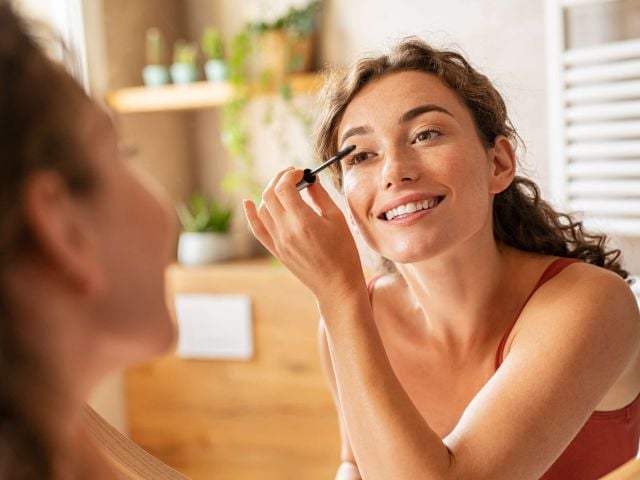WASHINGTON – On Sunday, the Edgewell Personal Care Company issued a voluntary recall of three batches of Banana Boat sunscreen products after finding benzene, a known carcinogen, in one of its popular sprays.
Benzene, a chemical proven to cause cancer, was detected in Banana Boat Hair & Scalp Spray SPF 30. There is no safe level for human exposure to benzene. Exposure can occur by inhalation, orally, and through the skin. The Centers for Disease Control and Prevention says benzene can potentially result in cancers, including leukemia and blood cancer of the bone marrow, and blood disorders that can be life-threatening.
Benzene is not intentionally added as an ingredient in sunscreen formulations, so it isn’t listed on product labels. But it can contaminate products during manufacturing.
“The Food and Drug Administration should create safeguards and a contaminant testing program to prevent chemicals like benzene in everyday products like sunscreen,” said EWG Senior Scientist David Andrews, Ph.D. “But the agency does not require companies to test their products for contamination. Rather, it relies on third parties or manufacturers to identify harmful products after they’re already on the market and widely used.”
In June, the FDA reported that although the source of benzene contamination in aerosol products is unknown, it could be due to contamination of inactive petroleum-derived ingredients like thickening agents, spray propellants and antifungal preservatives.
In its news release on the findings and recall, Edgewell said, “While benzene is not an ingredient in any Banana Boat products, the review showed that unexpected levels of benzene came from the propellant that sprays the product out of the can.”
Aerosol sunscreens have been found to be widely contaminated by benzene, creating potential exposure risks for anyone using them. Sunscreen sprays can seem easier and more appealing to apply to children, who are constantly moving. But in addition to benzene exposure concerns, these products may not coat the skin enough to ensure proper sun protection.
Edgewell in its news release advised consumers to immediately stop using the affected sunscreen spray and discard the product appropriately.
“For 16 years, EWG has warned consumers about the health hazards linked to harmful ingredients used in sunscreens,” said Emily Spilman, EWG’s healthy living science analyst. “In that time, we’ve seen a substantial rise in sunscreen sprays. More than 250 spray sunscreens were reviewed in the 2022 Guide to Sunscreens.”
In May 2021, an independent laboratory published a chemical analysis of 294 batches of sunscreen and after-sun care products from 69 brands. According to the lab, 27 percent of the batches had detectable concentrations of benzene, which is restricted by the FDA for use in sunscreen products because of its “unacceptable toxicity.”
In July 2021, Johnson & Johnson, which owns Aveeno and Neutrogena, issued a recall for specific aerosol sunscreens, even though it said daily exposure to their contaminated sunscreen “would not be expected to cause adverse health consequences.”
But Consumer Reports obtained an internal FDA health hazard evaluation in December 2021, a week before Johnson & Johnson’s recall, that reached a different conclusion. The report stated “life-threatening” health hazards and “permanent impairment of a body function” could be caused by use of the company’s contaminated sunscreens.
“We expect the FDA to finalize its new sunscreens rules this fall,” said Melanie Benesh, EWG’s vice president of government affairs. “The agency must keep contaminated or unsafe products from reaching consumers in the first place. We hope the FDA will require and set deadlines for manufacturers to test their sunscreens for contaminants like benzene. Whatever the source, benzene does not belong in consumer products.”
Tips to keep your family safe
Benzene contamination of some sunscreens should not discourage anyone from keeping safe in the sun and wearing sunscreen when it’s needed.
When selecting a product:
- To reduce inhalation risk and minimize potential benzene exposure, choose a lotion instead of a spray or powder – they pose inhalation risks and may provide inadequate protection.
- If you must use a pump or spray, apply sunscreen to your hands first, then wipe it on your skin or your child’s to ensure uniform sun protection.
- Avoid SPF values above 50, which may provide a false sense of security and can lead to overexposure of high concentrations of sun-filtering chemicals.
Shoppers also can visit the Skin Deep® database or download EWG’s Healthy Living App to get ratings and safety information for sunscreens and other personal care products. EWG’s sunscreen label decoder can also help consumers looking for safer sunscreens.
###
The Environmental Working Group is a nonprofit, non-partisan organization that empowers people to live healthier lives in a healthier environment. Through research, advocacy and unique education tools, EWG drives consumer choice and civic action.



